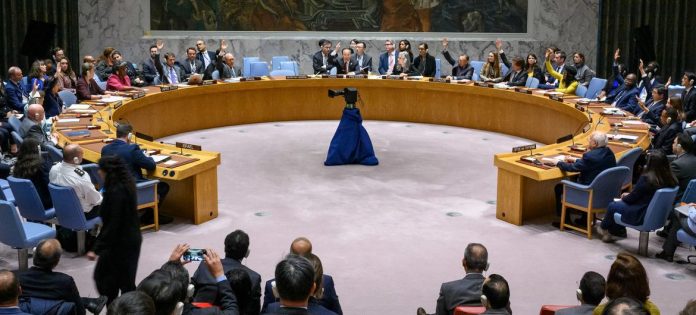The adoption of the resolution, drafted by Malta, was the first reaction since the Israel-Hamas war broke out. It calls for “urgent and extended humanitarian pauses” in the Gaza Strip to de-escalate the crisis.
The resolution was passed by 12 votes to 0, with the US, UK and Russia abstaining. Israel immediately rejected the document, emphasising its detachment from reality and lack of meaning, especially in the absence of condemnation of Hamas.
The resolution was amended four times: the original demand turned into a call for a humanitarian pause and the immediate release of hostages held by Hamas and other groupings.
Malta’s UN Ambassador Vanessa Frazier saw the resolution as an important first step, reaffirming the commitment to protect civilians and address the plight of children in armed conflict.
However, the resolution did not mention specific events such as Hamas attacks on Israel on October 7 or the subsequent Israeli airstrikes and ground offensive in the Gaza Strip.
The US and UK abstained because the resolution did not condemn Hamas, and Russia abstained as the document did not demand a ceasefire.
Despite the support, the resolution also drew criticism. Israel’s UN Ambassador Gilad Erdan dismissed it as detached from reality, while Russia’s UN Ambassador Vasily Nebenzia called it a weak appeal given the Council’s powerful tools.
UAE Ambassador Lana Nusseibeh stressed the unity of the council, considering it an important achievement. However, although UN Security Council resolutions are legally binding, their practical implementation varies.
In response to Israel’s rejection, Frazier and Nusseibeh underlined the legally binding nature of the resolution and pointed to UN Secretary-General Antonio Guterres’ upcoming report on its implementation, scheduled for 28 November.
Palestinian Ambassador to the UN Riyad Mansour emphasised the urgent need for a ceasefire, stating that “death, devastation, and destruction” are taking place in Gaza.
